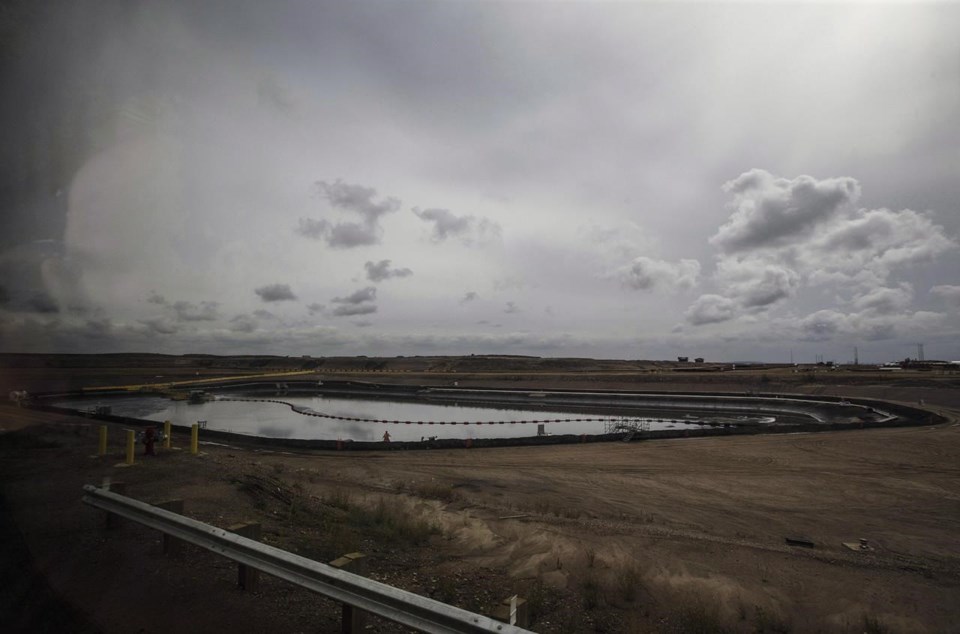CALGARY — Suncor has reported six million litres of water that exceed sediment guidelines have been released into the Athabasca River from a pond at its Fort Hills oilsands mine.
"Suncor took action to stop the discharge system and the release has been stopped," said a note from the Alberta Energy Regulator sent to area First Nations on Monday.
The note said the water is from a pond used to settle suspended solids in surface water that runs in from various parts of the site. The water has drained from muskeg, rock and soil overlaying the bitumen, material being stored for reclamation and other areas of the site that are undisturbed by mining.
Suncor spokeswoman Erin Rees characterized the release as "surface water that has a high natural silt content."
Normally, the sediments are allowed to settle and the water is emptied into a creek that drains into the Athabasca River.
But on Sunday, Suncor reported that levels of solids suspended in the water were more than twice the allowed limit.
Suncor said it has stopped outflow from the pond and is studying the cause of the problem and how it affected water quality.
Spokespeople for the Athabasca Chipewyan First Nation and Mikisew Cree First Nation said the bands were notified of the release Monday.
Environment Canada has also confirmed that it was notified.
Environment Minister Steven Guilbeault said he didn't have much more information than what was published by the Alberta Energy Regulator on Monday.
“I have asked my officials to urgently look into it,” he said.
However, the government of the Northwest Territories said that Alberta failed again to let it know about what's going on in a watershed they share.
"We are deeply concerned by this lack of information sharing and notification which is a commitment of our transboundary water management agreement," Shane Thompson, the territory's environment and climate change minister, said in a release.
"This further erodes the trust of the government of the Northwest Territories, Indigenous governments and organizations, N.W.T. communities, and residents in the management of water, the potential release of treated tailings to the Athabasca River and (our) transboundary agreement."
Thompson said he planned to raise the issue with his Alberta counterpart, Sonya Savage, in a meeting scheduled Wednesday.
Timely notification of water releases from oilsands mine became an issue earlier this spring.
Last May, Imperial Oil noticed discoloured water seeping from one of its tailings ponds that turned out to be groundwater contaminated by waste, but neither First Nations nor governments were notified about the problem until February after a second release from a catchment pond. Three inquiries have since been called into that nine-month silence — an internal probe called by the regulator's board, an inquiry by Alberta's information commissioner and a series of hearings by the House of Commons environment and sustainability committee.
At those hearings on Monday, First Nations leaders called for the regulator to be disbanded and rebuilt. Alberta Energy Regulator head Laurie Pushor and executives from Imperial Oil are expected to appear on Thursday.
Water tests after those releases have confirmed toxic chemicals in local groundwater and at least one nearby water body.
Guilbeault has promised to create a new watchdog group to ensure intergovernmental communication around wastewater releases, as well as to address ongoing concerns about the possibility of seepage from all oilsands tailings ponds.
This report by The Canadian Press was first published April 18, 2023.
— By Bob Weber in Edmonton. Follow him on Twitter at @row1960.
The Canadian Press



